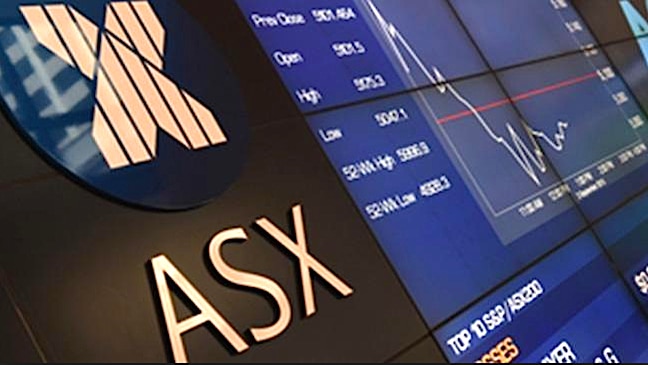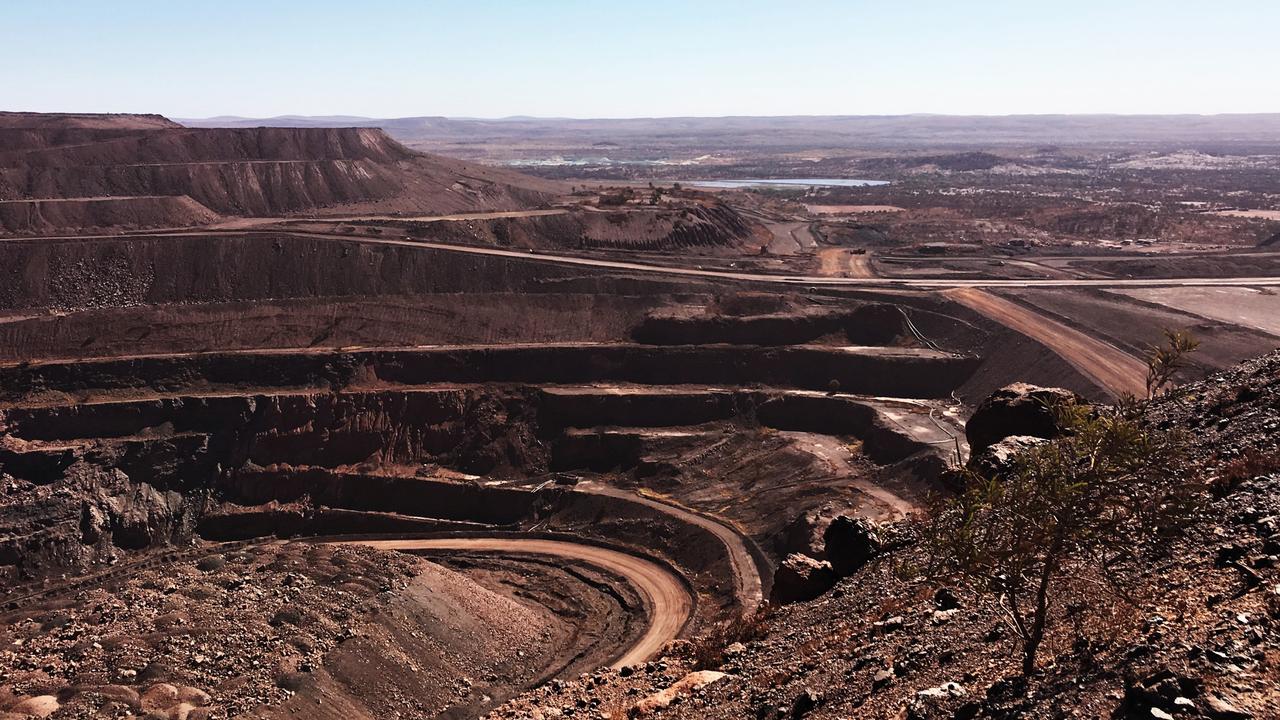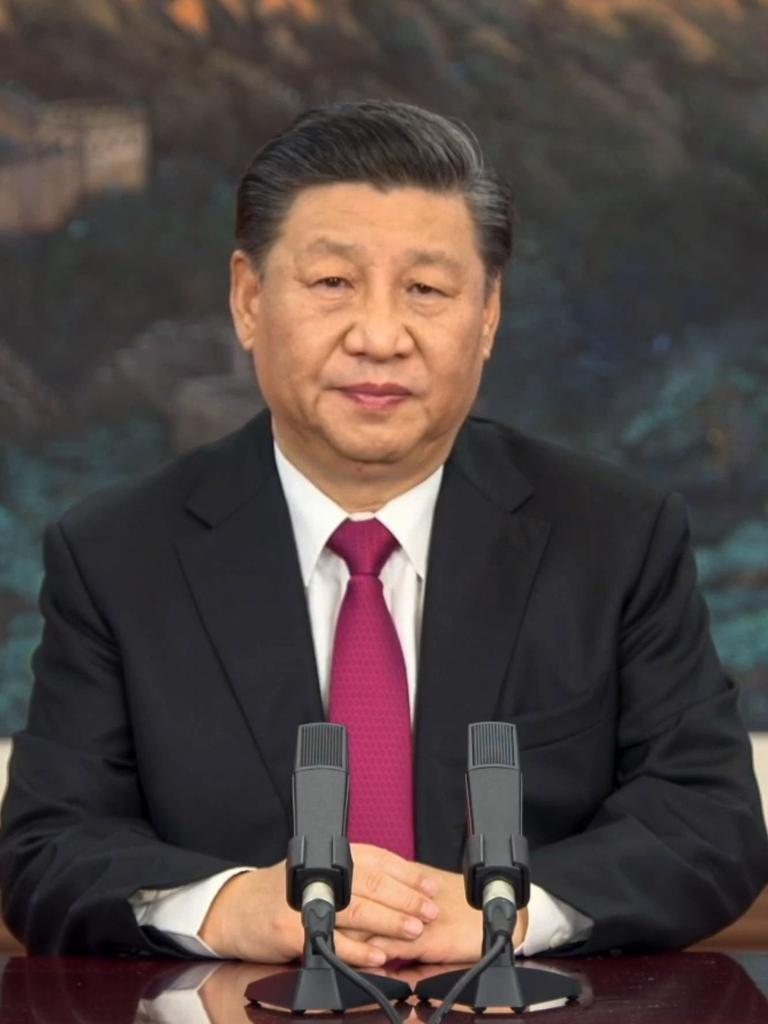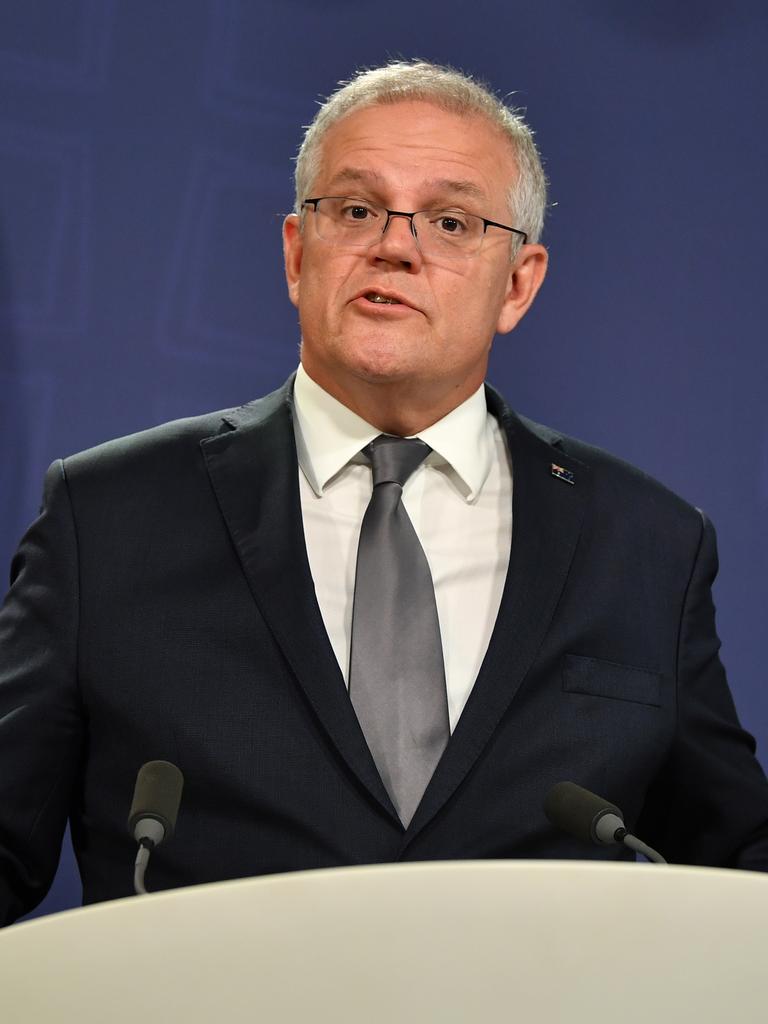China’s warning could wipe $32 billion from Australian economy
China has launched a plan that it says could wipe $32 billion from Australia, as Beijing’s accuses us of “profiteering” on our exports.

China has warned Australia it is in for economic “pain” in the near future — saying plans to hit our highest export are already taking effect and could wipe billions from our economy.
According to CommSec, iron ore prices are down sharply again this morning, dropping US$11.85 a tonne or 5.9 per cent to US$188.25 a tonne — after hitting a record high of more than $US230 a tonne earlier this month.
That comes after it dropped 5.1 per cent at the end of last week — sending shockwaves through mining companies on the stock market.
The valuable steelmaking ingredient is by far Australia’s biggest export, and a whopping 60 per cent of it is gobbled up by China for its constantly churning mills.
Sparked by China’s high demand for steel, the roaring iron ore trade has thrown Australia an economic lifejacket in the midst of the coronavirus recession.
But Beijing has had enough of paying record prices for it and is cracking down hard to reduce the cost.
Oh....
— David Scutt (@Scutty) May 23, 2021
Dalian iron ore off another 7% to end the week$AUD#ausbizpic.twitter.com/BntZbi0AJs
Iron ore down US$11.85 a tonne or 5.9% to US$188.25 a tonne. (CFR Tianjin port).#ironore#ausbiz
— CommSec (@CommSec) May 24, 2021
On Sunday the National Development and Reform Commission (NDRC), China’s top economic planner, along with four other departments, held a meeting with industry leaders and vowed to severely punish “excessive speculation, price gouging and other violations” that they say helped lift prices.
Regulators would adopt a “zero tolerance” approach toward illegal activities and strengthen regulation of abnormal transactions and malicious speculation, the NDRC said in a statement.
The skyrocketing ore prices are putting China’s economic recovery from the pandemic at risk, with companies and everyday Chinese citizens bearing the cost.
Chinese government mouthpiece the Global Times says companies have already raised prices for a wide range of products, including refrigerators, washers and bicycles, citing rising costs.
However, analysts told the paper that China’s latest moves to crack down on “speculations and other market manipulation” is about to send “chilling waves across the globe”.
‘Australia’s pain’
The Times singles out Australia as the nation that will be hit hardest by the crack down — given iron ore is such a dominant force in our exports — and accused us of “profiteering” from the rising prices.
“Among the most affected could be iron ore exports from Australia, which has benefited massively from the sky-high prices in its main export – emboldening officials in Canberra to continue on their relentless provocation against China,” the paper stated.
“While China’s reliance on Australian iron ore will likely continue in the foreseeable future, despite its efforts to diversify sources, sharp drops in iron ore prices would mean heavy losses in export revenue for Australia, which is already seeing declining trade with China in areas such as wine and seafood.”
It says that iron ore prices have dropped $9.25 per tonne since Beijing took action last week. It says that could translate into a loss of over $2 billion in extra revenue for Australia based on the amount of exports to China in the first four months of 2021.
“If prices fell from about $200 per ton last week to about $60 per ton during the same time last year, losses in revenue could have been over $32 billion,” it stated.
RELATED: China’s empty threat to harm Australia

Flaws in China’s plan
The price of iron ore is dropping as Beijing implores its steelmakers to explore overseas ore resources and widen their sources of imports.
However, analysts have pointed to flaws in the plan saying China would need to develop hundreds of new mines in a short space of time to keep up with its steel production.
China has been the main driver of global metal markets for more than a decade and they’re showing no signs of slowing down.
Research house Capital Economics estimates that Chinese steel production rose by 7.5 per cent in April compared with March. While Capital Economics believes April’s production level may prove to be the peak, Australia’s miners have seen strong activity continue into May.
However, China is under pressure to reduce its carbon footprint and has promised to take steps to do so, which is at odds with its recent ramp-up in steel production.
Beijing started the year with a plan to drive steel production lower in 2021 to reduce pollution from the sector, which is estimated to account for about 15 per cent of the nation’s total emissions.
This clearly isn’t going to plan, with steel production hitting record levels, but the expectation is that the Chinese government will attempt to put the brakes on booming steel production in the second half of this year.
Given Australia sells over 60 per cent of its iron ore to China alone, this could mean we take a serious economic hit.
Australian mining insiders have told the AFR they are wary of what could happen in the near future if China goes hard on its intervention in the steel market.
Global demand feeds industry optimism
However, they said the level of demand across the rest of the world is so strong that they see no need to panic.
“If China cuts steel production someone else will do it,” a source inside one of Australia’s big miners told the publication.
Feeding that optimism is the fact that the steel market around the world is red hot right now.
European steel giant ArcelorMittal this month lifted its steel prices for the 12th time since November, taking a tonne of hot rolled coil (steel) in Europe to €1050 ($A1655) – up by more than 80 per cent over the past seven months.
RELATED: China to step up domestic iron ore mining

Meanwhile, Nucor, the biggest steel maker in the United States is taking the stock market by storm and struggling to find workers to keep up with its expanding operations.
Even COVID-19-ravaged India is going hard to increase steel exports, which rose about 26 per cent in the March quarter, according to S&P Global Platts.
However, Shiro Armstrong, director of the Australia-Japan Research Centre at the Australian National University, told news.com.au if China and Australia try to diversify away from each other, then it will have serious consequences for both nations.
He said that the idea Australian mines can simply find other nations to make up for the iron trade we do with China “sounds fanciful”.
“It would be unrealistic in the short term, and likely in the medium and long term for both nations because it would come at a cost neither governments or mining companies will be able to bear,” he said.
Government intervention ‘could lead to more uncertainty’
He said the international market between Australia and China is one that has delivered.
“There is not good track record when governments try to intervene in the market, and China’s efforts could lead to more uncertainty and higher prices there,” he said. “None of their policies will work because they would lead to a huge hit to China’s construction sector.”
On the flip side for Australia, he said the demand for iron ore elsewhere in the world simply isn’t there – especially with prices as high as they are now.
The latest figures show that China produces over half of the world’s steel – producing over 996 million metric tonnes in 2019. The next highest was India which produced nine times less – with just over 111 million metric tonnes.
Mr Armstrong said it would be best for the governments of both nations to stay out of the market.
“We’ve had a very beneficial relationship with China that’s driven by market fundamentals. If both countries start looking to retreat from that open market … that’s a pathway to living standards in both countries,” he said.
China’s reliance on Australian iron ore – which has resulted in massive financial windfalls for our biggest mining companies – have come despite trade tensions between the two countries being at an all-time high.
RELATED: Australia has failed on ‘assertive China’


Outright ban is ‘unimaginable’
According to Chinese state media, NDRC spokesman Jin Xiandong blamed Australia for damaging trade relations.
“Consequently, we have to make the legitimate and necessary reaction, and Australia should bear full responsibility for such moves,” Mr Jin told the conference.
“We urged the Australian side to treat China-Australian co-operation objectively and reasonably, to treat Chinese companies fairly, end the disruption of bilateral trade and investment co-operation and take actions to bring forward bilateral relations for healthy development.”
But despite Australia and China’s icy relationship, an outright ban on iron ore is “almost unimaginable”.
Instead Beijing could resort to other tactics to make the export of iron ore more difficult for Australia companies, energy research and consultancy firm Wood Mackenzie told Bloomberg earlier this month.
“While an outright ban would be almost unimaginable, various forms of restrictions, delays or increased administrative burdens on Australian iron ore imports could yet happen,” Wood Mackenzie warned.
Originally published as China’s warning could wipe $32 billion from Australian economy



